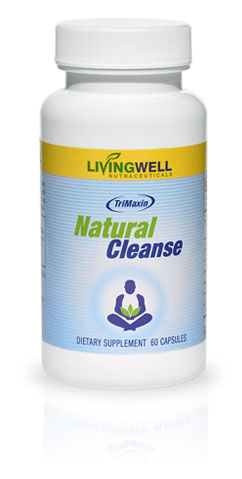8 Essential Steps
 An estimated 26 million U.S. adults have chronic kidney disease (the loss of kidney function),[i] but most don’t know they have it. In fact, early on the disease often causes no symptoms, and because it progresses slowly most don’t realize there’s a problem until they’re already quite sick.
An estimated 26 million U.S. adults have chronic kidney disease (the loss of kidney function),[i] but most don’t know they have it. In fact, early on the disease often causes no symptoms, and because it progresses slowly most don’t realize there’s a problem until they’re already quite sick.
Symptoms to watch for, especially if you have diabetes, high blood pressure, or a family history of the disease, include:
- Fatigue
- Trouble concentrating
- Poor appetite
- Trouble sleeping
- Nighttime muscle cramps
- Swollen feet and ankles
- Puffiness around your eyes in the morning
- Dry, itchy skin
- More frequent urination, especially at night
When you have kidney disease, it means your kidneys are damaged and do not work as effectively to filter your blood. This means that wastes and other toxins may build up in your body, triggering other health problems like heart and bone diseases and anemia. Ultimately, kidney failure, which requires dialysis or a kidney transplant, can result.
How to Keep Your Kidneys Healthy: 8 Simple Steps
Kidney disease is often avoidable, as it’s often linked to other lifestyle-related health conditions, like diabetes, high blood pressure, heart disease and obesity. In fact, diabetes and high blood pressure are responsible for causing most cases (about two-thirds) of chronic kidney disease, while an enlarged prostate gland, autoimmune diseases, inherited conditions, glomerulonephritis (which causes inflammation and kidney damage) and the use of certain medications, such as aspirin and ibuprofen, can also contribute.
With that in mind, the following lifestyle measures can significantly lower your risk, and even slow or stop kidney damage that’s already occurred.
8. Avoid Smoking
Smoking worsens kidney disease and also increases your risk of health conditions linked to kidney damage, like diabetes, heart disease and high blood pressure.
7. Exercise
Exercise helps you avoid several of the primary risk factors for kidney disease, including obesity, diabetes, high blood pressure and heart disease. By improving circulation and helping your muscles to use glucose (preventing an excess buildup of sugar in your bloodstream), regular exercise is invaluable for long-term kidney health.
6. Eat for Kidney Health
Fruits and vegetables, particularly cranberries, blueberries, spinach, onions, celery and asparagus, are beneficial for kidney function. Focusing your diet on fresh, unprocessed foods is also important, and generally a heart-healthy diet is one that will be beneficial for your kidneys as well. Excess amounts of sodium, potassium, animal proteins and sugar should be avoided for kidney health. You may also want to use caution when consuming genetically modified foods, as residues of glyphosate-based herbicides (like Roundup) widely used on GM crops and modified Bt insecticidal toxins that are produced by the GM plants themselves have been found to kill human kidney cells.[ii]
5. Maintain a Healthy Weight
Losing weight if you’re overweight will help you improve control of diabetes and lower your blood pressure, two major risk factors for kidney disease. It’s also been found to help prevent additional decline in kidney function among those who already have kidney disease.[iii]
4. Drink Plenty of Water
Drinking enough water daily may help your kidneys to cleanse your body of toxins. In fact, one study found that people who drank the most water (3.2 liters/day) had a significantly lower risk of developing chronic kidney disease than those who drank the least.[iv]
3. Use Caution With Statins
Statin drugs to lower cholesterol are linked to an increased risk of acute kidney injury, where the kidneys suddenly stop working as they should, when taken at high doses.[v] Statins may also cause rhabdomyolysis, a condition that causes muscle cells to break down, releasing myoglobin, which can also cause kidney damage, into the bloodstream.
2. Avoid Over-the-Counter and Prescription Painkillers
Pain-relieving medications including aspirin, acetaminophen (Tylenol), ibuprofen (Advil, Motrin), naproxen (Aleve), and Celebrex can cause kidney damage when used long term because they reduce blood flow to the kidneys. There are far safer pain-relief alternatives for your kidneys (and overall health), like Heal-n-Soothe.
1. Support Your Body’s Natural Detoxification Processes
 It’s your kidneys’ job to filter toxins and waste from your bloodstream, so the fewer toxins in your body, the lighter the burden on your kidneys becomes.
It’s your kidneys’ job to filter toxins and waste from your bloodstream, so the fewer toxins in your body, the lighter the burden on your kidneys becomes.
You can help to flush impacted fecal matter and other toxins from your system by choosing a gentle detoxification system like Natural Cleanse. Unlike chemical laxatives or fad cleansing diets, which often contain harsh ingredients, Natural Cleanse combines the very latest research and clinical studies in digestive health with centuries of traditional healing wisdom into a natural product that gently releases and flushes toxins from your colon.
It also contains a patented probiotic blend that helps rebalance your vital gut microflora, which preliminary research suggests may help to support healthy kidney function as well,[vi] along with milk thistle, which has also shown promise for kidney support.[vii]
In a nutshell, you can help lower your risk of kidney disease by managing conditions like diabetes and high blood pressure, along with drinking plenty of water, exercising, eating right, not smoking and being careful with your medication use. Additionally, regularly detoxing your body with a gentle flush like Natural Cleanse helps cleanse your body, lifting some of the burden off of your kidneys, for optimal kidney support and function.


In post war Europe, where I grew up, it was widespread knowledge that eating watermelon is very good for kidneys.